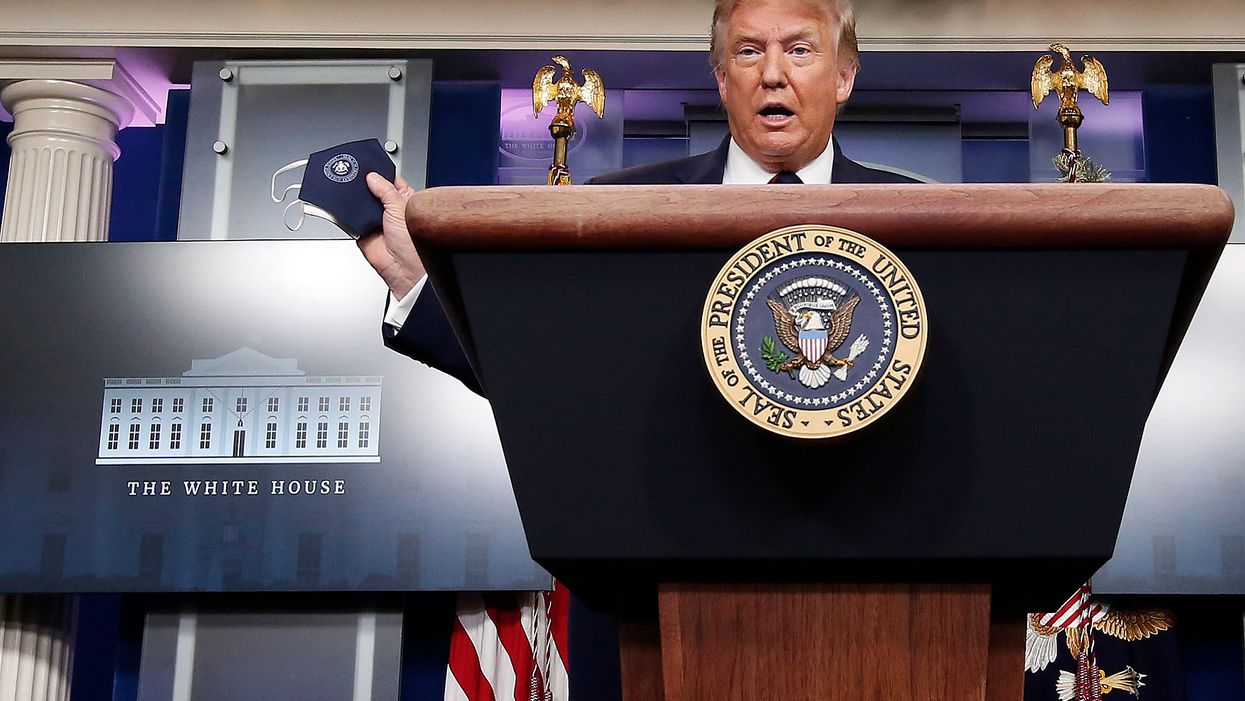There remains essentially no evidence for President Trump's constant claims that expanded voting by mail will allow the November election to be stolen from him. But a new poll shows his dark warnings are nonetheless resonating with the public.
Mail-in voting is vulnerable to significant levels of fraud, in the view of almost half of respondents to the latest ABC-Washington Post poll, released Tuesday. The share who said so, 49 percent, matches the number from a similar poll by Gallup this spring.
The new finding is important for several reasons: It shows Trump's constant allegations penetrated the national belief system this spring and have stayed there. It offers a political rationale for Republicans, in Congress and the states, to resist spending more or relaxing rules to promote absentee balloting as a healthy and reliable alternative during the coronavirus pandemic.
And it suggests half the country is prepared to listen if Trump refuses to accept the November election results on the grounds they were tainted — which he signaled he might do in an interview that aired Sunday.
The Post-ABC poll found that 38 percent of Americans said they'd prefer to vote by mail with 59 percent preferring to vote in person.
One in four votes have been cast by mail in the past few elections. But the percentages have doubled, tripled or gone even higher during the 2020 primaries as election officials promote mail-in voting as the way for people to avoid exposure to Covid-19.
Not surprisingly, only 28 percent of the supporters of Democratic presidential candidate Joe Biden see mail-in voting as vulnerable to substantial fraud. Among backers of Trump, 78 percent say there's a significant risk.
When questioned about the risk versus reward of mail-in ballots, 43 percent said they were confident of adequate safeguards in place to thwart fraud.
Trump's opposition could ultimately stifle participation among Republicans, many in the party worry, because absentee ballots are used disproportionately by older people, who skew reliably conserfative. Beyond the tactical risks of Trump's position, though, is the widely held view of good-government advocates that the president's rhetoric is threatening to do lasting harm to the nation's already beleaguered confidence in the democratic process.
The ABC-Post pollsters interviewed 1,006 adults, including 845 registered voters, July 12-15. The margin of error was 3.5 percentage points for the full sample.
The Gallup poll in April found that, while 49 percent believe that more mail voting will mean more fraud, the number rises to a combined 61 percent when people are asked if there would be "a great deal " or "fair amount" of fraud.
Trump most recently repeated his unsubstantiated attacks on mail-in voting in a tweet Tuesday: "Mail-In Voting, unless changed by the courts, will lead to the most CORRUPT ELECTION in our Nation's History! #RIGGEDELECTION."
Besides the rhetoric by Trump and other Republicans, another factor that is likely causing greater suspicion are the examples during the primaries where mail-in ballots have been mishandled.




















